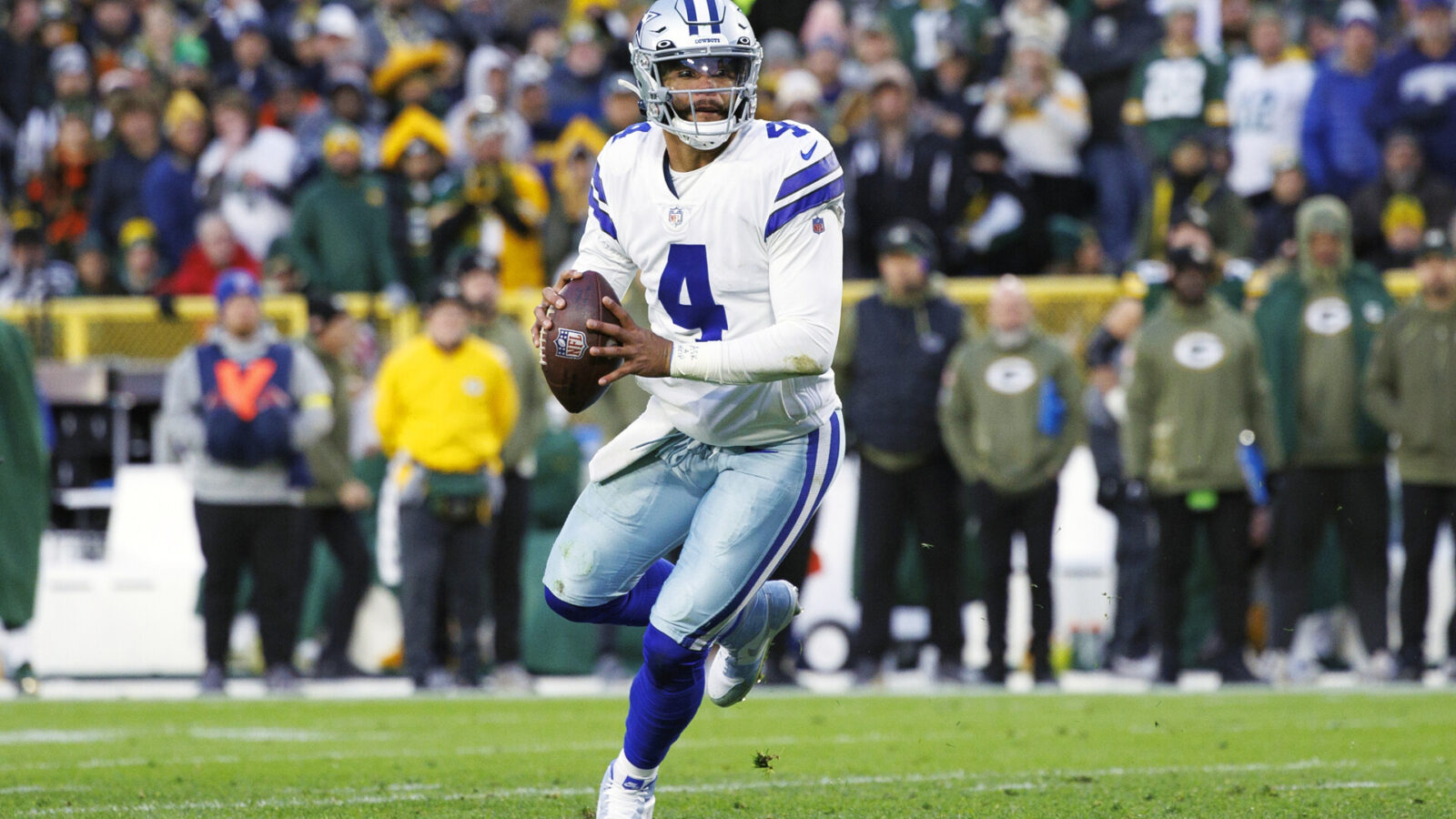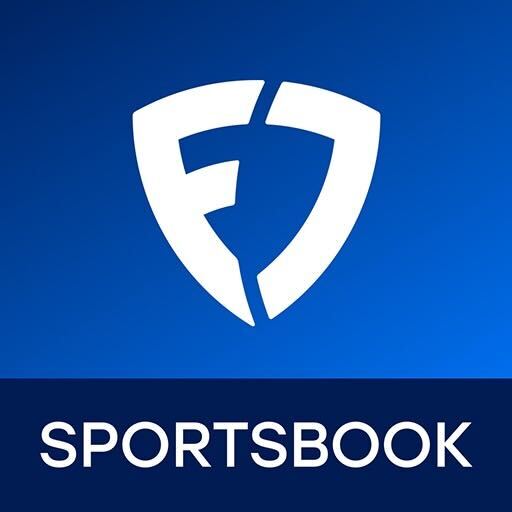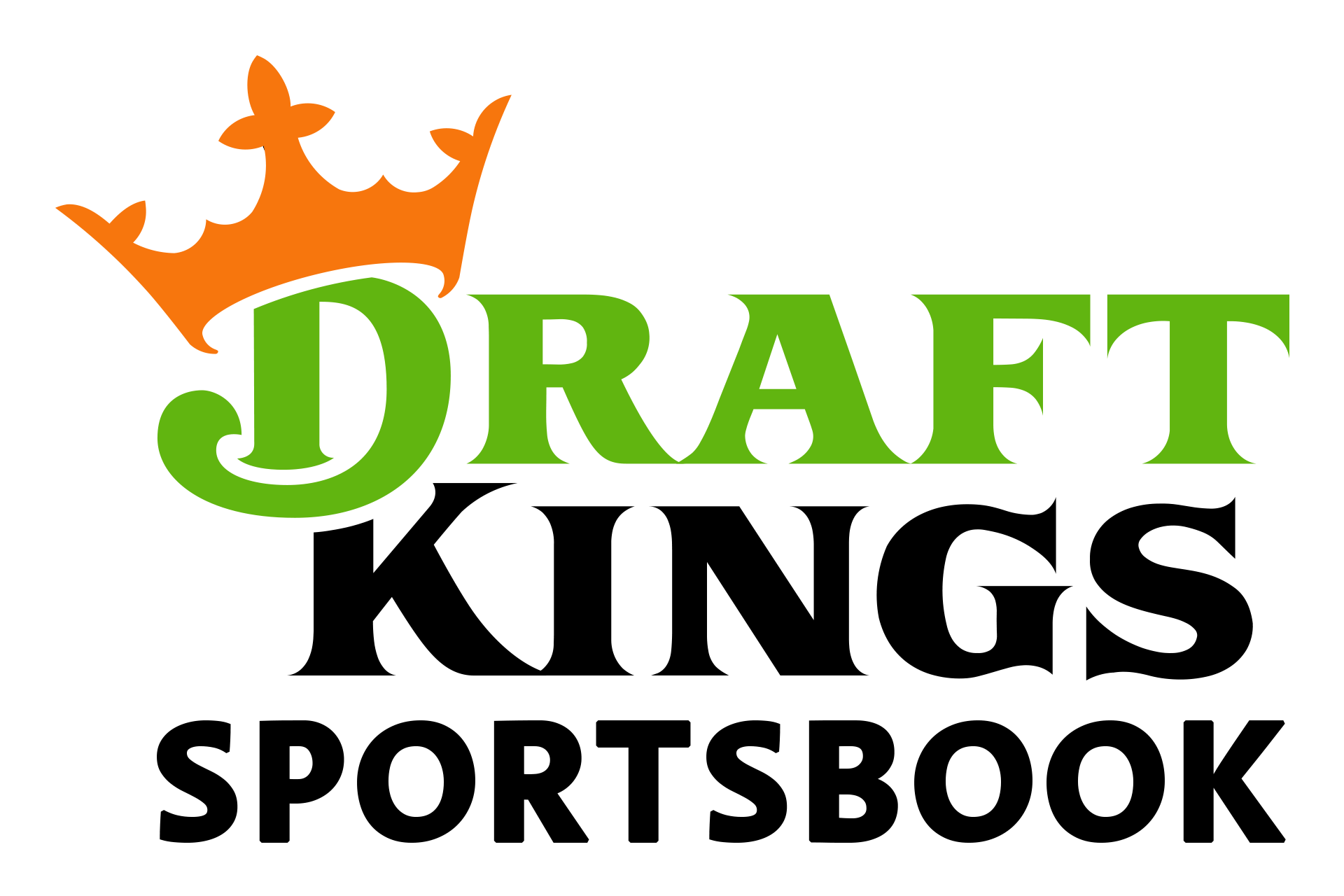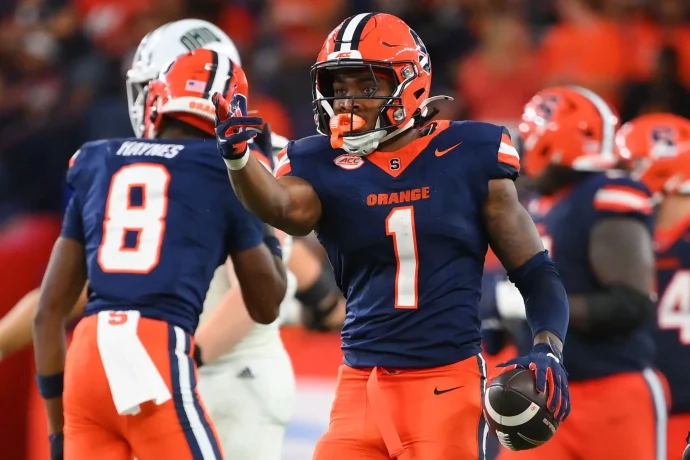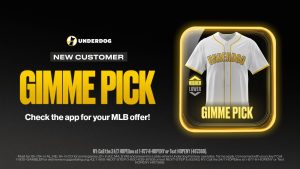If you’re new to sports betting or haven’t taken advantage of many of the new online sports betting sites, then this is the place to begin your education. Props.com has put together a quick look at everything you need to know to get started and to make successful, intelligent choices when betting on sports with our Sports Betting Tips (How To Win At Sports Betting) guide.
Start with Sports Betting Basics, where you’ll learn about the most common types of sports bets available. Find out about point spreads, money line bets, futures, parlays, same-game parlays, and more. Get tips on how to place a sports bet at a legal online betting site, read sports betting odds, use popular sports betting systems, and more.
Let us help you understand how weather can affect games and the handicapping of odds. We even include some facts and myths about sports-related weather phenomena. For example, did you know that wet and/or snowy conditions affect defense more than offense? True!
While logic guides most sports bettors in their journey, some believe in betting against public opinion. This is also known as “fading the public.” But is this a wise strategy? Does it work? Get the 411 on the pitfalls of fading the public.
Finally, we have tips and betting strategies for NFL Football, MLB Baseball, NBA Basketball, and even college basketball tournaments. We’ll be adding to the list of sports as time goes on, but you’ll find plenty of good advice and information that will cut across sporting leagues and be valuable no matter your bet, be it European soccer, World Series play, and even golf.
Whether you prefer online wagering at legal betting sites, or visiting a retail sportsbook, the tips in this guide will give you more than a fighting chance to achieve success and become a winning sports bettor.
So, what are you waiting for? Check out our Sports Betting Tips guide, the latest addition to the Props.com library of sports betting strategy articles.
Sports Betting Basics
Newcomers to sports betting are easily intimidated by the many options available on a typical oddsmakers’ board. An understanding of the odds used by bookmakers is a big step in the direction of making successful sports betting picks.
Common Types Of Sports Bets
Using this understanding of odds and how they work, in combination with a little sports wagering strategy, is a powerful one-two punch. Below are discussions of the most common odds used to handicap various sporting events for the purposes of betting.
| Bet Type | Description | Example Line | Bet Explained |
|---|---|---|---|
| Point Spreads | A handicap that adds or subtracts to a team's score to make betting even on both sides. | Packers +7/Vikings -7 (-110) | Pick a side. If betting on the Vikings they would need to win by more than 7. Winning by exactly 7 would be a push. |
| Moneylines | A straight wager without point spreads | Packers +250, Vikings -300 | If the Packers win the game, every $100 bet will yield $250 in winnings (plus the original $100 bet). |
| Totals | A wager on the total score of the game, displayed as an over/under. | Packers/Vikings 49.5 o/u (-110) | Pick a side. If betting on the over, the total score of the game would need to be over 49.5 (or 50). |
| Parlays | A combination of bets | Packers +230 + Dolphins +330 (Total bet odds +1400) | The Packers and Dolphins would both need to win for you to win the bet. |
| Futures | A bet on a outcome in the distant future. | Vikings +1200 To Win Super Bowl | The Vikings must win the Super Bowl to win the bet. |
Point Spread Bets
One of the most common forms of odds across many different sports, the point spread (or simply “the spread”) is simply a set of numbers used by bookmakers to attract wagers on both sides of a proposition. Technically, the point spread is the eventual difference in terms of points that a team will win or lose by, depending on if they’re the favorite or the underdog.
An NBA point spread may look something like this:
San Antonio +4 Houston
The first team listed is the away team, and the second team is at home. In this case, the Spurs are on the road against Houston. The plus symbol and the number 4 indicates that the point spread is 4 points. Here, the oddsmaker has picked the Rockets to beat the Spurs in Houston by at least 4 points.
A bet on Houston will payout only if the Rockets win by 4 or more points. A bet on the underdog Spurs will pay out under two different conditions:
- Houston wins by 1, 2, or 3 points
- San Antonio wins outright
Moneyline Bet
Different sports favor different types of odds. For example, most pro football bets are on what’s called the “moneyline.” This is slightly more complex than the point spread.
Wagering on the money line is nothing more than attempting to pick an outright winner, regardless of score. Essentially, a money line is a point spread bet without the need to worry about all those messy point totals.
Money lines may look more complex, but really they’re designed for ease-of-use. A bettor can learn a lot about a game with a single glance at a money line. A money line for the NFL might look like this:
- New England Patriots -200
- Houston Texans +220
By looking at these two lines, the bettor learns a lot.
- The name of the home team (always the team on the bottom, in this case Houston)
- Who the favorite is, according to the bookmaker. (In this case New England, always the team with a minus sign next to its name)
- How much he can win
- How much he needs to wager to win a specific amount
The numbers in a money line indicate two different things, depending on whether the team is a favorite or an underdog. In the case of the favorite, the number next to the minus (-) symbol tells bettors how much they’d have to wager in order to win $100.
This number is used because it’s easy to scale up and down. The money line number as assigned to underdogs indicates the potential return on a wager of $100. In this example, a $100 bet on the Texans to pull off an (unlikely) upset would result in winnings of $220.
Top Sportsbook Picks in All States
Totals Bets
Totals bets are some of the simplest odds bettors will find. Sometimes called the “over/under,” a game total is simply the combined point total between two teams in a sporting event. The oddsmaker establishes a number, which varies widely from sport to sport, and bettors wager whether they think the actual total will be “over” or “under” that amount. Totals bets are very useful in sports like football and basketball because it’s easy to learn how to find vulnerable totals numbers.
Parlay Bets
A parlay is little more than a combination of more than one bet into a single wager. Parlays are considered exotic because they come with an increased amount of risk compared to the standard point spread, money line, and totals wagers.
Bettors can place parlays on between two and twelve games (even mixing different odds bets) in most pro sports. The more teams involved in a parlay, the larger the potential payday. Parlays payout only if every wager that makes up the combo wins. A single loss and the whole bet is lost.
Futures
A Future Bet is a bet on the outcome of a scenario that happens in the long term. A good example is making a bet on the end of the season or winner of the Super Bowl or World Series. Futures bets are typically made by bettors at the beginning of the season. However, future bets are often available after the season starts with lines moving based on the new information. Futures are not generally available for a specific game, but rather general outcomes.
For example, in the NFL, many sportsbooks offer odds for every teams’ chances to be the division winner, make a playoff appearance, become the AFC and NFC Champion, or win the Super Bowl.
Although futures bets tie up your funds for a long time, they’re enjoyed by sports bettors for their steep odds (and huge payouts) as well a long-term entertainment value over the course of a season.
Line Movement
To understand the concept of “line movement,” you first have to understand how and why bookmakers set odds to begin with. Bookmakers establish odds in order to create a balanced portfolio of customer wagers. In layman’s terms, they want an equal number of bets on either side of a proposition to maximize their profits.
Understanding what lies at the heart of sports betting lines makes it easier to understand why they move and how these changes can benefit sports bettors. The best analogy we’ve yet heard to describe line movement involves imagining being on the scale at the doctor’s office.
The scales that use the weights of varying sizes to balance out, and at that balancing point is a person’s weight. Bookmakers adjust their lines much like the nurse adjusts the metal weights, to find a balancing place where their risk (called “exposure”) is as close to 0 as possible.
There are two main reasons that a sport betting line moves significantly. The first involves large wagers by heavyweight bettors. Professional sports handicappers who lay big amounts of money on a contest draw attention from bettors, yes, but more importantly from oddsmakers.
After a major player in the industry makes a move, people are likely to follow. That requires the oddsmaker to move the line to adjust for the influx of bets on one side of a contest. The other reason for line movement involves sports news. For example. a major injury or roster shakeup can change the likely outcome of a game, and bettors and oddsmakers rush to react.
For a complete look at how to add bonus money to your bottom line, check out the Props.com Guide to Sportsbook Bonuses.
Top Sportsbook Picks in All States
Popular Sports Betting Systems
Like any form of gambling, systems that purport to help bettors win more often pop up time and again. Some of these procedures are valuable or have valuable features. Some are mathematically unsound or downright bad betting behavior. Finding value in existing sports betting systems while knowing what to ignore is key for sports bettors looking to increase their overall performance and win more often.
Wong Teasers
An example of a popular sports betting strategy is the Wong teaser. It’s a good example of how a sports bettor can use strategy to gain advantage over the house. However, bookmakers have grown wise to this tactic. In response, they have changed the way they operate to counteract them.
The inventor of the Wong teaser researched NFL final scores over the decades and determined that most final scores followed patterns. Specifically, he found that games were decided by three points around 15% of the time, by seven points around 8% of the time, and then by ten and by six points respectively, in order of how common the actual difference in points is. Based on this information, the basic strategy of Wong teasers was developed to help bettors identify wagers which gave them even the slightest edge over the oddsmaker.
In Conclusion…
Regardless of how a bettor uses the information available to him through the use of odds, they are important tools to the industry. They may be the single factor that unites all forms of sports wagering all over the world. Learning the ins and outs of the most popular bets and odds types is just the first step. Before moving on to advanced sports betting strategy tips, get a feel for the process of making an educated betting pick, and get a feel for how wagering with odds works.
Betting Games That Involve Bad Weather
Some of the most beloved and talked-about sporting events of the 20th century involve nasty weather. Let’s face it—for some fans (and athletes)—there’s nothing better than a mud-soaked college football game or a Major League Baseball contest in heavy wind.
While some athletes seem to thrive in other-than-ideal conditions, others are more seriously impacted. How can a sports bettor factor in the effect of an approaching storm?
Any fan who’s frozen their way through an outdoor sporting event in the winter or gotten soaked to the bone watching a soccer match during monsoon season knows weather has an impact.
Understanding The Effect Of Weather On Sports
So how can bettors use information about the weather to their advantage? The impact of inclement weather on sports has everything to do with how wind, rain, snow, and ice affect athletic performance. Strong wind affects pitchers, quarterbacks, soccer players, tennis players—athletes of all stripes, really.
Let’s not even get into falling snow and sheets of slippery ice. When weather affects an athlete’s control, be it fog or a torrential downpour, it presents an unavoidable challenge to sports bettors.
Learning how to wager under extreme weather conditions is important for all major sports. Because myths about the weather are so pervasive, it can even help bettors when they lay wagers on games in normal weather or under the protection of a dome.
Handicapping Using Weather
Handicapping is all about finding an edge, and bad weather (or the lack of ) can be that edge. An example of conventional weather-based sports betting wisdom is that it’s smart to bet “Under” totals in outdoor NFL games in the rain or snow. This small fact can be enough edge to turn a so-so wager into an advantageous one.
But remember, weather (like so many factors in sports) can have little or no impact. It very much depends on the athletes involved and the game conditions. A strong wind may make a pitching duel seem obsolete. On the other hand, a dominant performance from either starter can quickly wipe out that perception.
It doesn’t help that sports bettors and even sportsbook sites are already weather-obsessed. Analysts talk about the weather. Casual fans talk about the weather. Even the local meteorologist will spend all week making predictions about the chance of rain for the weekend’s big game. Because there is so much talk (and so many misconceptions) about how weather affects wagering, it’s a difficult tool to use as a handicapper.
Example Of A Bad Weather Game
Consider the infamous Fog Bowl. Played on the very last day of 1988, the game was a divisional playoff contest between the Chicago Bears and the Philadelphia Eagles of the National Football League.
Chicago is not known for being particularly pleasant weather-wise, especially in the dead of winter. During the second quarter of this game, a dense fog rolled into Soldier Field. Some players said they couldn’t see more than five or six yards in front of them.
The home-field Bears eventually squeaked out an ugly 20-12 victory. This win was due primarily to stand-out linebacker Mike Singletary, a player known for thriving in bad-weather situations. Had the fog not rendered the Eagles’ best weapon (QB Randall Cunningham) useless, the game could easily have swung the other way.
Many NFL contests, and particularly playoff games, can play out in bad weather.
Top Sportsbook Picks in All States
The Downsides Of Handicapping Via The Weather
One big danger in handicapping a game primarily based on a weather event is that weather can (and does) change. How often has a major rainstorm dissipated miles before the stadium? How many times have you brought a coat to work, only to sweat your way through your home commute?
Another dangerous aspect of handicapping based exclusively on a game’s meteorological conditions is that you’re handicapping based on a single aspect of a game. It’s a solid rule of thumb in sports betting to avoid handicapping a contest based on any single factor. (Barring extreme circumstances.)
It may be best to consider the impact of weather on a game’s outcome about as seriously as a significant injury. Much like an injury, poor field conditions will be analyzed by everyone: experienced sports bettors as well as amateurs, the people setting the odds, as well as both teams participating in the game.
The bottom line is this: bad weather does not normally give an edge to either side. Yes, weather affects games, usually making them look a lot cooler, but everyone involved in your bet (from the oddsmaker to the defensive coordinators of both teams) will already have thought of that and made appropriate adjustments.
Facts & Myths About Sports & Weather
Facts:
- Wet conditions usually cause playing surfaces to behave differently.
- Wet and/or snowy conditions affect defense more than offense. (This demands an example—imagine a football game during a torrential downpour. With that much water coming down, the ability of both O and D lines to perform sweep blocks is greatly impeded. Offenses can almost always perform as well wet as they do dry, while the defense is forced into a contest of strength.)
- Very cold or very hot conditions can affect the way balls move.
Myths:
- Snow and ice have a big impact on the final score of outdoor games.
- Games played under wet or rainy conditions will have less total scoring.
- Athletes hate playing in bad weather and will perform poorly because of it.
The mythical power of snow must have something to do with our ancestors’ fear of it. Though it can make us cold, wet, and miserable, it generally doesn’t affect sports all that much.
For starters, few pro sports in the West are played under icy and/or snowy conditions. The artificial grasses and synthetically heated fields common in today’s stadiums contribute as well, making the cold stuff little more than a pretty background shot for the camera crews.
Weather’s Biggest X-Factor: Wind
If any single weather event should be a big part of a bettor’s handicapping strategy, it is wind. Outdoor baseball, football, and soccer games all involve moving relatively light balls across great distances. Wind makes it all that much more tricky when Mother Nature is pushing the air in different directions.
This is particularly true in the modern NFL, a league in which strong passing teams are often dominant compared to teams that power it out between the lines. Gusty winds, regardless of their direction, will kill a strong West Coast offense. This is because it relies on multiple players’ abilities to move the ball through the air. But windy conditions will affect all types of NFL teams (and other sporting clubs), in that offenses tend to be conservative, producing a lower-scoring affair than a game without wind.
Rain makes mud, snow makes ice, and heat creates cramps. But only wind directly affects how games are played on both sides of the ball. If you must consider weather as a handicapping factor, focus on wind. No other weather event will make point spreads move or alter the tactics of coaches and players like the wind.
Best Sportsbook Bonus Guides
- Top U.S. Online Sportsbook Bonuses
- Top Arizona Online Sportsbook Bonuses
- Top Illinois Online Sportsbook Bonuses
- Top Indiana Online Sportsbook Bonuses
- Top Michigan Online Sportsbook Bonuses
- Top Pennsylvania Online Sportsbook Bonuses
- Top New York Online Sportsbook Bonuses
- Top Colorado Online Sportsbook Bonuses
- Top Maryland Online Sportsbook Bonuses
- Top Ohio Online Sportsbook Bonuses
- Top Virginia Online Sportsbook Bonuses
- Top Tennessee Online Sportsbook Bonuses
- Top Massachusetts Online Sportsbook Bonuses
Betting Against Public Opinion aka “Fading the Public”

One of the most common myths about sports betting involves betting against public opinion. This is also known as “fading the public” in wagering parlance. Fading the public is often the only betting strategy that amateurs know about in the world of sports betting. Does betting against public opinion produce the best bets with consistent results?
Thankfully, that question is easily dealt with. As a sports bettor (and as a human being), you should always be suspicious about anything that sounds too good to be true.
The idea that simply placing wagers on the opposite side of public opinion will make you a sports betting pro is so over-simplified it’s not even funny. If this were true, anyone could be a millionaire, placing high-dollar fades and cashing checks left and right.
That’s simply not how things work in the real world. Estimates of just how often professional bettors place successful wagers fall within a very limited range, typically 51% or 52%.
Pro gamblers earn their bread and butter in those slim percentages between breaking even and winning. If gamblers who dedicate their entire lives to the practice are only right JUST BARELY above half the time, how can simply betting against the public produce consistent wins? It doesn’t.
Listening To LOGIC
The logic behind the “fade the public” concept makes sense if you don’t examine it very deeply, a touchstone of bad betting strategies across the spectrum. The supposed logic goes like this—if you always bet against the masses, you’ll be more likely to take advantage of in-game aberrations, bad points spreads, and over-analysis by oddsmakers and punters alike.
There is a jaded aspect of this strategy, as well, that should give bettors pause. Proponents will tell you: “Sportsbooks make money against the public all the time—why can’t I?” This world-weary stance on the business of gambling is all too common. Sure, on its face it makes sense to avoid teams, athletes, or props that the hoi palloi are doubling down on, simply because the sportsbooks must know something the customers don’t.
This approach fails to take into account just how good oddsmakers are at their job. The whole “fading the public” strategy is (believe it or not) INCORPORATED into the handicapping done by the sportsbooks. One reason why sportsbooks make as much cash as they do (and believe me, many of them make boatloads of it) is that they stay at least a step ahead of Joe Public, even when Joe Public decides to take a wrong turn at Albuquerque and bet against the herd.
Does It Really Work?
Let’s imagine a world in which a simple fade-the-public strategy would work. In this world, the vast majority of money wagered on games would have to come from the kind of amateur bettors that follow the talking heads on ESPN or (worse) their own emotions. If we lived in that kind of world, it would make perfect sense to fade every bet.
Of course, we don’t live in that kind of world. In our world, the sports betting market is almost totally controlled by sharp bettors and smart money. The changes in sports betting since the explosion of online gambling have actually reduced the likelihood of the success of public fading.
After online sportsbooks started raising their limits (to attract pro bettors and their fat wallets), the success of sportsbooks (and the odds of the games involved) became way more reasonable. Do you think this was an accident? Big bets placed by guys with more sports knowledge than anyone in history started to outweigh the tiny recreational bets that were once sports wagering’s bread and butter.
True, some advantage gambling is still possible because of shading, but that’s almost exclusively for recreational bettors with very small bankrolls. It was these very arb opportunities that led to the creation of free-to-read odds papers (Oddsportal and the like) and the explosion of this kind of strategy around the world. What happened? Even the small-money recreation-only books got smart. Then the arbitrage market died and even small-time bettors started losing by fading the public.
Pitfalls Of “Fading the Public”
There is a further danger for bettors seeking to use “fade the public” as an arbitrage opportunity. One such result is that you might get kicked out of your book. You might even have your winnings rescinded. That’s because those few books that still list prices off the standard market (to attract recreational bettors) are built to recognize patterns of opposite-side wagering.
The fine print in any decently written Terms of Service contract will give the book a way to ensure that your money is no longer good with their service, and shut you out entirely. They do this by taking a LONG time to pay (months, in some cases), or even (anecdotally) by blatantly ripping off public-faders’ accounts.
Sites that still offer the kind of lines that make public fading a good tactic exist ONLY to make money on people wagering along with the masses. Any customer who wagers like a sharp will soon get treated like a sharp and shown the door. Truly, trying to run a public-facing system at a recreational sportsbook could lead to huge financial troubles.
I’ve read that sharps account for as much as 60 times the amount of cash that recreational bettors lay down. No wonder, then, that online (and land-based) books cater to their needs and restrict any possible arbitrage due to public opinion.
The Final Word On Fading The Public
In case we haven’t made the case strongly enough, the notion that always fading the public leads to big winnings is wrong. It’s wrong because it’s based on bad philosophy and even worse math.
Does this mean that it never makes sense to bet against the grain? Of course not. What it does mean, however, is that bettors should use actual strategy and handicapping tactics to place smart wagers rather than depend on a gimmick like public fading. When that handicapping and research shows an opportunity to win against the general betting public, go ahead and fade to your heart’s content. Just don’t do it because it’s a “can’t-lose” strategy.
Top Sportsbook Picks in All States
NFL Football: How Injuries Affect Sports Betting
NFL injuries are common. With eleven players on the field (and a total of 53 on a team’s roster), it’s no surprise that this contact sport results in a long list of injuries from week to week during the season.
Injuries cause changes to a team’s roster. Different injuries have different impacts on a punter’s overall NFL strategy or the handicapping of an individual game. Injuries in the NFL also affect point spreads and overall odds, shifting the line considerably depending on the player injured and the impact of the injury on the team.
Injury Report Basics
News of injuries appear as soon as they occur—whether a player is hurt in practice, in a game, or because of an accident outside the game. The 24-hour news cycle of modern sports reporting will make sure the public hears about it. Bettors that keep up with sports news should be aware of important injuries as soon as they occur.
Officially speaking, in pro football, each team’s full injury report appears by Thursday morning. They are updated 90 minutes before each game’s kickoff time. For Thursday night games, that isn’t much time for bettors to consider the reports for the two teams facing off.
The key fact to remember about NFL injury reports is that teams must post a final list 90 minutes before kickoff. Reading and understanding the injuries in the final report before a game should be a piece of any pro football betting strategy.
How To Read An NFL Injury Report
It is not difficult to find these comprehensive lists of player injuries. All the major networks carry them online. You can also find them listed on teams’ websites and at NFL.com.
Five main acronyms are used to reflect a given player’s status. The report will list the player’s name, position, the injury in question, and an acronym used by the team to report a player’s likely status at game-time.
“P” – The most common symbol on any NFL injury report, P stands for “Probable.”
The P symbol is often used on players who may have missed a practice or two or are nursing an older injury but will probably still play. A player listed as Probable is very likely to put on a helmet and play in the team’s next game.
“Q” – One rung down the ladder from Probable is “Questionable.”
This is where a player’s likelihood to appear in the next game starts to drop. A player listed this way is just as likely to play as not. Smart bettors see a Questionable status as an indication that even if the athlete does recover and get in the game, his numbers may be off. Sometimes a player earns Questionable status as a precaution. Just know that betting against an athlete just because he earned a Q in the previous week may not be wise.
“D” – A player listed with an injury and a D next to his name is “Doubtful” to play.
When an athlete’s injuries force him to miss enough practice time, and the medical and coaching staff don’t think he’ll make the roster for the coming week, he earns the D rating next to his name in the injury report. This symbol by no means indicates the player absolutely will not play. It does make the likelihood of his playing in the next week even less likely than Questionable players. A player’s D status may not keep him off the roster but could lead to a weaker on-field performance.
“O” – Injured athletes listed with an “O” status are “Out” of the lineup for the next game.
Once an NFL team commits to listing a player as Out, it means they will not be playing in the next game. It can also mean an eventual move to the Injured Reserve list. Most O ratings won’t appear until later in the week or closer to a game’s start time. This makes it frustrating for bettors because a player’s status as Out impacts their strategy the most.
“IR” – The worst listing on a pro football injury report – IR stands for “Injured Reserve.”
Teams place athletes with long-term injuries on special lists called Injured Reserve lists. Generally, a player’s IR status means he is out for the entire season. A return from the IR list in the same season is a rare occurrence. Obviously, a team that loses a critical piece of its success to the IR list must be evaluated differently after the injury, considering the IR list usually means an entire seasons’ absence.
Using Injury Reports To Make NFL Picks
With as long as two weeks between some NFL games, bettors would be wise to watch the league’s injury reports and wait to place bets until any “questionable” or worse players are determined to be suiting up or not.
The best pro football bettors combine an ability to shop for the best line with the patience to wait for a clear picture of the outlook between two teams. Knowing what those team’s depth charts look like is a big part of the overall evaluation of a team. Without knowing the status of injured or questionable players, a bettor isn’t able to make a confident pick.
An injury in the NFL may not affect a team’s overall performance as much as an injury in the NBA, where smaller team size means losing any single piece has an immediate impact. Of course, as in any league, the loss of an elite player like a starting QB or future Hall of Fame linebacker can change a team’s outlook, depending on the severity of the injury and how long it is expected to affect the athlete.
For more on NFL betting and daily fantasy sports, check out the following guides:
Top Sportsbook Picks in All States
MLB Picks: Baseball Betting Software
Baseball betting software is the future. It should be a necessity for anyone betting on baseball games, of which there are 162 in a season.
The days of drawing unreadable graphs on chalkboards, calculating error-filled odds with ancient calculators, studying unreliable and hard-to-find statistics, and abiding by various “methods” (that are really just scams) are over.
With baseball betting software programs, clear and engaging graphs are done for you. Accurate and enlightening odds are calculated at the click of a mouse. You can find organized statistics available immediately and categorized as you deem fit. This eliminates the need to follow any scams that are labeled as “methods.”
Advantages of Baseball Betting Software
Baseball software will:
- Save you time
- Provide you with fun
- Give you knowledge
- Make you money
Saving Time with Baseball Betting Software
Yes, that’s right. Baseball betting software will save you time. By doing all the graphs, calculations, and statistics for you, baseball betting software saves you an enormous amount of time.
No longer will you have to spend an entire weekend gathering all the data necessary to make well-informed bets. With baseball betting software, you can do an entire weekend’s work in a matter of hours.
Some expert tipsters run their own programs and use Excel sheets to monitor action manually but there are many places and betting websites that help you with the serious stuff and give you a better chance of long-term success.
Providing Sports Bettors With Fun
With the time baseball betting software saves you, you can have fun by actually watching baseball games. Not only that, but the very process of picking what games to bet on is far more fun when baseball betting software does the work for you.
In fact, all the stress that comes from creating unreadable graphs, calculating error-filled odds, searching out and studying unreliable statistics, and trying to abide by various methods will vanish once you start using baseball betting software. Without all that unnecessary stress, you can sit back and have fun placing your bets.
Knowledge Gained Via Baseball Betting Software
Not only will betting software give you the time to have fun watching a baseball game, it will also increase your knowledge of baseball. Baseball betting software provides you with the ability to manage and track every one of your favorite team’s statistics.
Whether you want to see how many homeruns the San Francisco Giants have hit against the Los Angeles Dodgers in the past ten years or a graph examining Max Scherzer’s ERA against the Florida Marlins, baseball betting software can provide it to you at the click of a mouse. As a result, your baseball knowledge will grow dramatically just by using baseball betting software. (Great way to impress your friends!)
Making Money With Baseball Betting Software
Lastly, but most importantly, baseball betting software will make you money. It will provide you with all the information needed to make accurate, money-making bets.
With up-to-date downloads and statistics on everything from a player’s past performance to details concerning an injury, you’ll be able to match up any two teams in the league and get an accurate prediction of the game’s conclusion.
Making a living betting on baseball is no longer a fantasy now that baseball betting software is available.
NBA Basketball: How To Pick Winners
The ability to consistently pick winners during the length of an NBA season does not come easily. Professional sports bettors would be ecstatic to pick the correct winner 60% of the time. Considering the cost of wagers, breaking even isn’t even a matter of picking the winning team 51% of the time. Mathematically speaking, a bettor who can pick the winning team 52.4% of the time is literally at the break-even point. Not only is picking winners tough, but it also requires being right more than half the time.
As many tactics for handicapping an individual NBA contest exist as do bettors themselves. This is a statistically rich sport featuring hundreds of the world’s top athletes. Just as there are many rational (and many irrational) existing tactics used by bettors and fans to pick who will win an upcoming game. There’s no magic bullet, no hidden stat, no formula to help bettors determine the outcome of a game. That being said, there are a few tips and tricks that make picking the winning team a little easier.
We’ll go over basic strategies here and then below this section, offer up some advanced betting strategies.
Take Advantage Of The Early Season
Smart bettors know that context is as important as anything else when it comes to a straight-up pick. In the NBA, the early season (the first 20 games in particular) is the best time to place wagers in terms of advantage gambling. Bettors have an edge against most bet shops, bookmakers, online sportsbooks, and mobile sports betting apps early on in the year for a number of reasons:
- Small changes to the staff have a bigger impact on the performance of individual players; early in the season, this impact isn’t understood well enough for the oddsmakers to make a smart pick.
- Early in the NBA season, pro and college football is just starting to heat up, and those sports are big money for sportsbooks. Take advantage of the fact that oddsmakers are busy handicapping a number of other sports —including European pro soccer—and definitely writing uninformed lines from time to time.
- Roster changes are more frequent early in the NBA season than any other team. They are so frequent, oddsmakers are incapable of writing a really solid line, especially on teams experiencing a lot of roster shakeups.
The best games to wager on early in the season, for advantage gamblers looking to chip away at the bookmaker’s handicapping ability, are games between two teams with a lot of unknowns. Maybe one team has a new coach or a new star and the other is going through a variety of looks on offense. Sometimes a change as insignificant as a new owner or rumor about a starting player counts, as the small team rosters make emotions run high.
Playing To Type
Considering the league’s best teams often perform well right out of the gate, while the cellar-dwellers are having a tough time putting together a decent starting roster, the early season is also a time when most teams will play to type. The trick here is to do enough research or gain enough basketball knowledge to understand what that type is, identify an opportunity based on what looks like a soft line at a bookmaker, and place a confident early-season wager.
Use All the Tools Available
It’s a great time to be a sports bettor, just as it is a great time to be a fan of sports.
Mobile sports streaming is now common and provides real-time stats. How many of us remember tuning into a game on TV or radio and having to wait until the next day for the newspaper to arrive with the stats?
These days, sports bettors have all sorts of tools at their disposal. Apple modified Siri’s programs a few years ago and she can now understand sports-related questions. Siri and others like her can respond to questions like: “Who will win tonight’s game between the Rockets and the Lakers?” They can reply with cognizant answers based on actual research. A few other examples of user-friendly mobile offerings:
- Bettors have always been able to purchase the advice of a “professional handicapper.” These services connect individuals to information provided by a personality dedicated to handicapping. For the price of a tuxedo rental, he’ll ostensibly help you make winning picks all season long.
- Most of today’s bookmaker apps and websites have their own convenient analysis tools or tip forums. These tip sheets or recorded audio analyses are part of the membership package at certain sportsbooks. Not using them is sort of like getting less out of your membership. These services are typically available for free. This makes anything of value learned from them like adding money to your bankroll.
- A bettor can look at a tool such as the online game prediction charts at teamrankings.com. This list presents games, picks, and even a confidence rating that tells readers how strong the pick is in terms of statistical analysis. Other sites have similar systems that essentially point bettors in the direction of the most statistically likely winners.
Consider The Context Of Every Game
In general, placing bets based entirely on any one factor is a bad idea. But there is one aspect of pro basketball betting that can have an almost singular influence on the outcome of a game: context. Because every team plays 82 games in a relatively short amount of time, the impact of a game’s context can sometimes be the unknown that bettors can see coming.
How can you look for a team’s vulnerability using context? One example stands out. That would be a team with a playoff berth who’s just been beaten by a much-worse team the night before. This is the classic “team with a chip on its shoulder.” It’s likely to do whatever it can to win after that embarrassing performance. The opposite may also be true. Take the same playoff-bound team but put it at the end of a three-day road stand after two consecutive easy wins. Fatigue combined with the low value of the third road game could be a clear sign of an upset.
The increased value of what we’re calling a game’s “context” is one of the more exciting factors in NBA betting. The NBA retains some of the high-drama and emotion of the college game, an element often lacking in the transition from college football to the NFL. Respecting the context of a game isn’t just smart strategically, it reflects an understanding of what’s required for season-long success.
Compare Individual Matchups
This may sound a bit simple, but what is really meant here is this: think like a fantasy owner. As a sports bettor, one has to respect the depth of statistical knowledge that fantasy players possess. Although they don’t generally care about the real NBA playoffs, they get a few things right. The ability of a successful fantasy basketball owner to identify the minutiae of statistical production across the span of four or five months is something every NBA bettor should attempt to emulate.
The most obvious way a bettor can use one-on-one matchups to handicap a game is to consider matchups versus spread. Aberrations from player averages are most common at the beginning and end of every NBA season. It’s especially important to pay attention to how teams line up position-to-position during the doldrums of the regular season. This is another reason why it’s vital to understand a player’s up-to-date statistics, and not just have general knowledge about how a guy is performing for his team. The lack of parity at some positions makes one-on-one comparison vital to any successful pro basketball betting strategy.
Pay Close Attention To Team-Wide Defensive Performances
NBA bettors and fans give team and player offensive performances too much credit. That isn’t to say that offense isn’t important; only that long-term success requires a certain amount of defensive play. A quick high-percentage offense is sexy for television but without a solid performance on the other side of the ball, it’s not a team that will produce wins long-term.
The rule is to consider defensive performance more important than offensive in the first half of an NBA season. A powerful defense is most likely to overpower top offenses during the first 40+/- games of the season. For whatever reason—fatigue, looking ahead to the playoffs—NBA teams known for strong defensive play (but who don’t have a high-octane run and gun offensive style) are more vulnerable.
Put more plainly—small point spreads favor a team with a better defense more than a high-powered offense. The modern league is guard-heavy and PF/C-light. Obviously, the big men that provide defensive numbers and can also score are very few and very far between. That means just a few teams are likely to beat the spread based solely on defensive ability. That makes identifying them very easy.
The NBA is all about balance. Good pro teams build rosters with the kind of statistical balance that insures against streaking. The same goes for sheer size, always an important factor in team defense. But historically, the biggest teams in the modern league are not successful. In the 2013-2014 season, the tallest and heaviest overall team also turned in the league’s worst record. Finding teams that strike a balance between big bullies and quick shooters is critical to picking NBA winners.
Read on for some tips on advanced betting strategy for the NBA….
Top Sportsbook Picks in All States
NBA Basketball: Advanced Betting Strategy
We live in the time of analytics, the age of Google, a Renaissance of numbers. Sports bettors these days are drowning in data in greater numbers than financial market analysts. Sports stat tracking has transitioned from a necessity to a hobby to a fan obsession. Mathematicians and stat freaks have created entirely new ways for fans and sports betting fanatics to look at athletes and the performances that make up their contests.
Raw numbers being what they are, the advanced metrics used by today’s stat-crunchers to analyze player and team potential are worth nothing without the ability to interpret them and put them into practice. Thanks to the Internet and the expansion of mobile technology, any fool can look up a metric. The trick is to put it to use in a way that makes your NBA betting more enjoyable, more successful, or more lucrative.
A big part of applying advanced metrics to NBA betting strategy involves simply understanding what the metrics are. They can be very valuable for sports bettors in handicapping games. It’s important to understand which metrics are useful for the kind of handicapping done by NBA bettors. Not to mention how these metrics are used to predict future performance in a way that the standard way of gauging a player’s value (looking at past performance) simply can’t.
Player Efficiency Rating (PER)
The keyword in the name of this metric is “efficiency.”
In a nutshell, PER is a way of tracking a player’s overall production on a per-minute basis. This is one of its strengths and is also its main limitation in terms of value to NBA bettors.
PER is a homogenized stat that takes both positive and negative contributions under consideration. It’s then presented so that things like playing time and pace of different teams/games don’t affect a player’s overall rating. In that sense, it’s a very fair way to judge different player’s contributions. This is true even if they’re on very different teams or play very different amounts per game.
The knock against PER is that it weighs offensive performance a little too heavily, and defensive performance way too lightly. Defensive studs and players that excel on both sides of the court have an unusually low PAR. On the flip side, guys who score a ton but don’t contribute much in other categories have inflated PAR numbers. For that reason—and because it is intended to break down a player or team’s statistical abilities in terms of time rather than overall performance—PAR is a good in-road to judging overall value. However, it shouldn’t be used as a stand-alone stat when it comes to picking winners.
Win Shares
The Win Shares metric crunches a bunch of numbers. It then spits out a stat that indicates how much a player contributes to his team’s wins. This makes it useful for sports bettors only in terms of head-to-head analysis between players.
It’s a little complex, but that’s a good thing. PER fails to take defensive play under much consideration. However, Win Shares is a combined total of Offensive Win Shares and Defensive Win Shares. These are figured the exact same way with different stats. Offensive Win Shares come from a calculation involving an average of points produced and a number of possessions. Defensive Win Shares are the same from a defensive perspective.
Sometimes it happens that a game can be picked based on an analysis of head-to-head competition. Since the season is long, this will probably happen multiple times every year. In that case, Win Shares is a more effective overall stat than PER if for no other reason than that it considers both sides of the ball as well as the value of a player to a successful lineup, with all parts playing their supporting roles.
The major flaw with the Win Shares stat for sports bettors is that it doesn’t take injury time into account. Good players can have their Win Shares numbers reduced during a period when they’re simply hurt. It’s also not an accurate measure of talent outside about the sixth man range, since PT is limited. The same is true for good players on teams that don’t get many W’s. This speaks specifically to cellar-dweller teams that contain an occasional player or two with heavy deviations from point norms.
True Shooting Percentage (TS%)
For some players (especially at the higher-end of the NBA talent pool), traditional field-goal efficiency is a misleading statistic. Sports bettors concerned with picking winners should employ the TS% stat. It gives a better overall picture of a scorer’s abilities than the old-fashioned percentage calculation techniques.
For starters, field goal percentage doesn’t take free throw shooting under consideration. Free-throw shooting is one of the most efficient ways to score in the NBA. It’s often the difference-maker in straight-up wins and losses. That means field goal percentage totally ignores one of the most valuable statistics in terms of handicapping games.
There’s another reason TS% is a better indicator of a scorer’s talent. It treats three-point and regular field-goal shooting differently to give a better single-look indicator of a player’s overall value. True shooting percentage indicates that James Harden is much more valuable than Andre Iguodala. This is the case even though Iguodala’s traditional “field goal percentage” numbers were better. TS% indicates when a scorer’s points are distributed in such a way as to make his team more successful.
The TS% can be looked at on an individual player basis or at teams of shooters as a whole. This makes it a greatly advanced metric to become familiar with. Since it’s limited to shooting ability only, it must be combined with some defensive stats for a complete picture to form.
Free-Throw Rate (FTR)
This advanced metric is so simple, it can be calculated in a bettor’s head while reading a stat line. A player’s FTR is simply his total number of free-throw attempts divided by his total number of field-goal attempts. As a measure of a player or team’s efficiency on offense, it can’t be beaten by any other advanced metric. Generally speaking, the more free throws a player or team attempts, the more successful they are. Teams that get to the foul line more win more often.
What’s fun about a metric like FTR is that it can be flipped to indicate the efficiency of a team’s defense. Looking at the opposing team’s FTR for a given game is a good way of seeing how that defense performed. Then these numbers can be drawn out for an entire season or a set number of games. (It can even be used on a set number of games against a given opponent or opponent’s offensive style.)
The FTR metric helps bettors handicap teams who put up big offensive numbers, especially teams that have high field-goal percentages. If a team is a high-octane producer of points but doesn’t get to the free-throw line that often, their offensive advantage shrinks considerably. Put that team up against a solid defensive team with an average FTR and the pick should be clear.
Advanced metrics are tools designed to help fans understand players and teams better. They also to assist fantasy sports players and sports bettors in their pursuit of success. Thousands of oddball statistics exist. The ones listed above are those most valuable to bettors looking to quickly pick winners for a given days’ schedule. Incorporating an understanding of these readily available advanced stats is a step in the direction of advanced basketball wagering strategy.
For more on NBA betting, check out the Props.com How to Read NBA Odds guide.
College Basketball: 5 Tips to Betting Conference Championships
Just before the NCAA Tournament, part of the great March Madness is the Conference Tournaments that take place. Conference tournaments can be a great time to win some money. Before you go betting on some of the conference tournament games, take a look at our 5 Tips to Betting College Basketball Conference Tournaments:
1. Ride The Hot Team
Oh yeah. Ride the hot team. Sure, there could be a team near the bottom of the conference that is playing good basketball but take a look at the trends. If there is a really hot team, make sure you’re giving them a fair look when betting. Many times in conference tournament play it’s the hot team that runs with the tournament title and then struggles after that, due to the time off. Ride the hot team during the Conference Tournaments.
2. Check The Game Schedule
Yes, check the game schedule. What does this mean? This means if a team is playing late at night, and then they have to play a turnaround game early the next morning, that’s a huge disadvantage. Check out the game schedule and game times before you make your bets. This is very important when playing back-to-back games.
3. The Favorites Don’t Always Win
Just like when you are betting the NCAA Tournament; the favorites don’t always win the game. Keep in mind, you may get an underdog team or two to win a game. Most of the time, the great big underdogs do not completely win the conference tournament, but the tournament is a grind. You’re not in it just to win one game, you want to win as many games in that conference tournament as possible.
4. Look At The Over
The conference tournament games are games that teams never want to quit in. What this most likely means is teams are going to be playing the entire 40 minutes. What this really means is there’s going to be a ton of fouls called and trips to the free throw line. There’s no easier way to go OVER the point total than by a parade of free throws late in the game.
5. Shop For The Best Odds
And finally, just like anytime you’re going to bet on college basketball or any sport, a good rule is to shop for the best odds. Do not just settle for odds, because it’s your favorite sportsbook. Take a look at a multiple sportsbooks and get the best odds before placing your bet. If you see +7.5 at one sportsbook, but there’s another that’s offering +7. This is an easy choice. Do your homework, and shop around for the best odds. Line shopping takes time, but will pay off in the long run.
There you have it. Those are some of the best tips we have for you as you go along and start betting on the conference tournaments. Best of luck, and enjoy March Madness along with the NCAA Tournament.
Check out our How To Bet On College Basketball guide.
Remember – sports betting is best approached as a hobby for entertainment purposes, which can be profitable in the long haul if you put some work into it. If you think you have a gambling problem, however, the top sportsbooks offer several resources.
Be sure to check out the entire library of Props.com Betting 101 guides, linked here:
- Guide to Reading Sports Betting Odds
- Guide To How to Bet on the NFL
- Guide to Parlay Bets
- Guide To Live Betting
- Guide To Super Bowl Squares
- Guide To Best Sportsbook Bonuses
- Guide To Daily Fantasy Sports Tips
- March Madness Bracket Tips
- Guide To College Basketball Betting
- Mobile Vs. Online Sportsbooks
- Sports Betting Tips Guide
- Guide To NBA Betting
- Legal Sports Betting States Guide
- Guide To Parlay Betting
- Guide To Prop Betting
- Guide To Moneyline Betting
- Guide To Over/Under Betting
- Guide To Futures Betting
